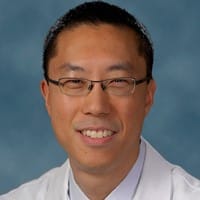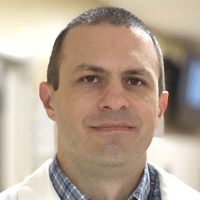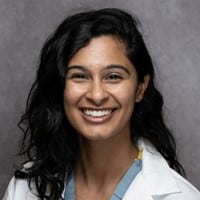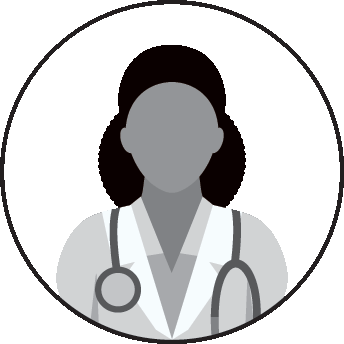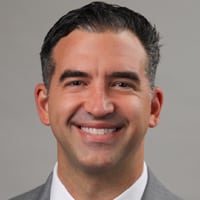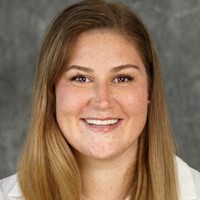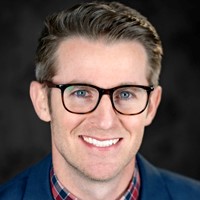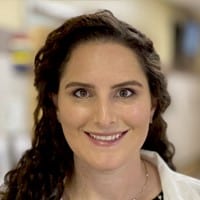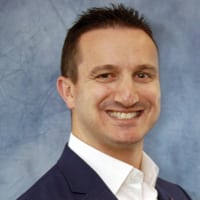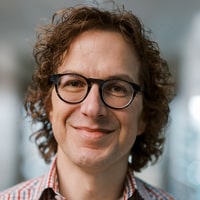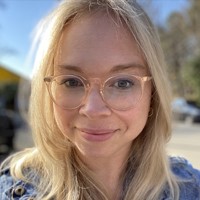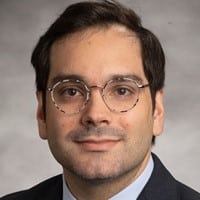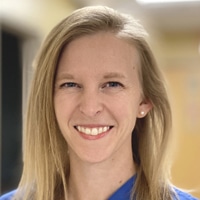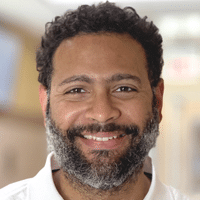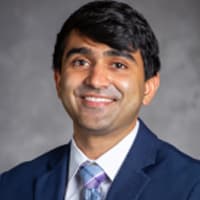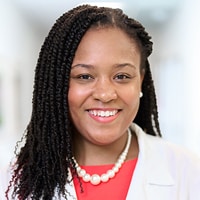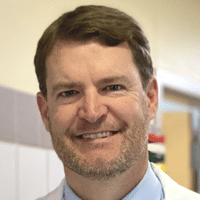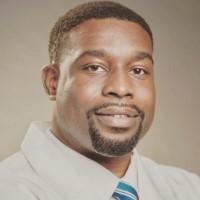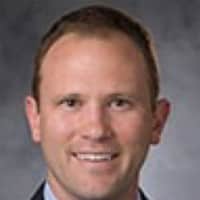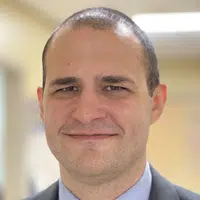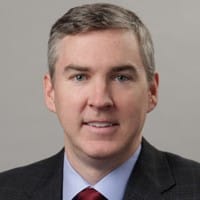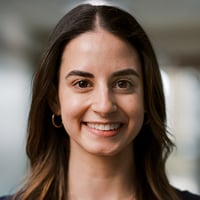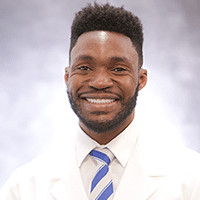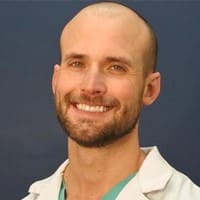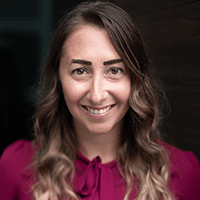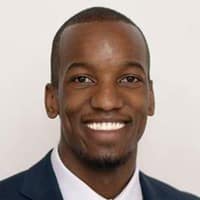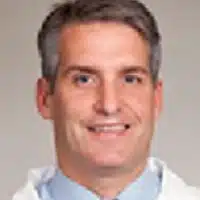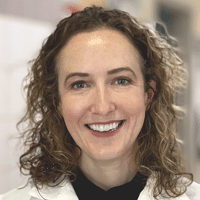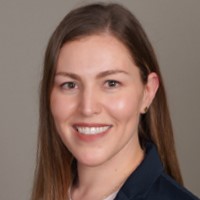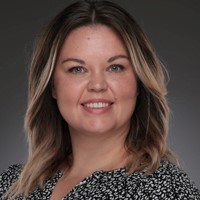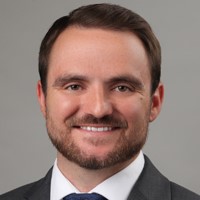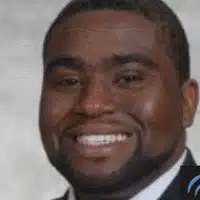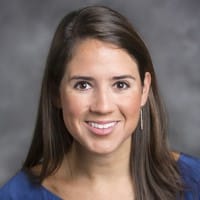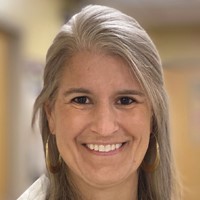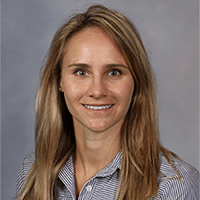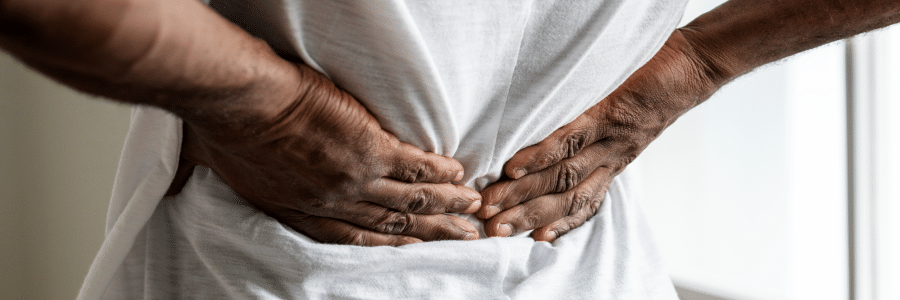Orthopedics Center
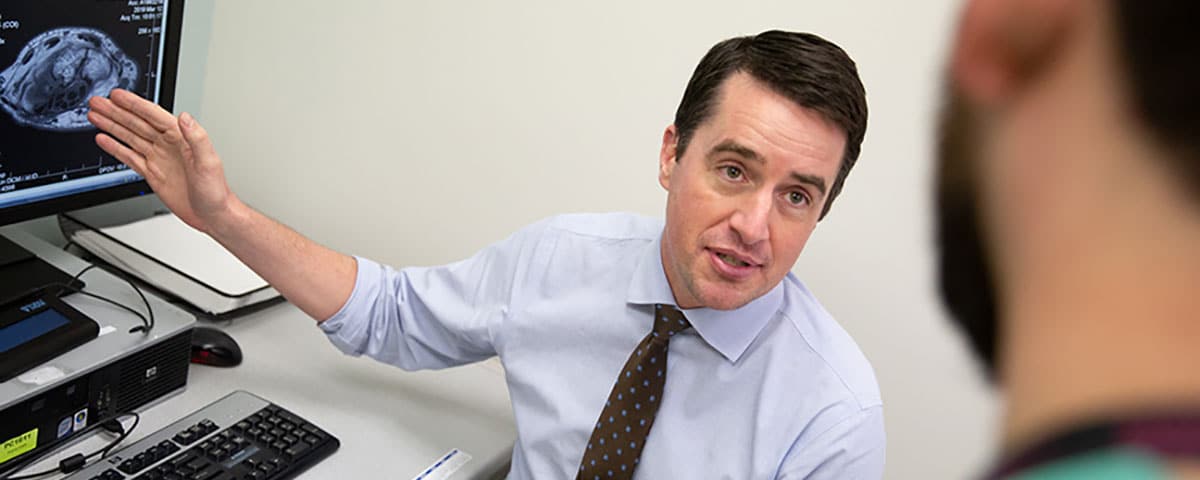
More Mobility, Less Pain
When you must stop doing something you love because your hip, knee, or other joint hurts too much, it’s time to see a Grady orthopedic specialist. That pain could be caused by a break, sprain, strain, or torn ligament that needs immediate attention. Or, it may result from deterioration associated with arthritis or another condition.
Grady orthopedic surgeons are trauma specialists who routinely treat patients injured in motor vehicle accidents, falls or other incidents that resulted in multiple broken bones, compound fractures, and fractures near a joint. This experience makes them experts in evaluating and treating the most challenging musculoskeletal injuries and conditions, including arthritis, deformities, hand and upper extremity injuries, and spinal disorders – particularly those complicated by conditions like diabetes and obesity.
But, most importantly, all our orthopedists are specialists in you and your needs. We will be a steady companion and partner, helping you choose just the right treatment or surgical procedure, providing the information you want about the condition you have and offering the support you need to get through the experience. Everyone’s journey is unique. We help you make the right decisions for you and arrange appointments that work with your schedule. And, where possible, we help you juggle personal and professional responsibilities. After all, life doesn’t stop when it hurts to move.
Why Choose Us
No one in Atlanta has the orthopedic expertise you find at Grady.
Grady’s Orthopedic Clinic deals with 11,000 unique patient visits each year – from trauma cases to compound injuries to nerve tendon repairs. Our surgical staff specializes in traumatology, the use of surgery to repair fractures and other injuries caused by trauma. This makes them uniquely qualified to handle the challenging orthopedic cases that other institutions often refer to Grady: complicated fractures, complex joint reconstruction, debilitating arthritis, joint issues associated with obesity, and others.
Trained at some of the nation’s top trauma centers, our orthopedic surgeons were attracted to Grady by the fact that we offer the most complete medical care in Atlanta and deliver it through multidisciplinary teams. That means the orthopedic surgeons who serve on the faculty of Emory University School of Medicine work side-by-side with specialists from other disciplines.
They use Atlanta’s newest medical technology to diagnose and care for thousands of patients each year, making them some of the most experienced orthopedic specialists in the nation. And, because Grady has one of the region’s most active research programs, we provide access to some of medicine’s most promising emerging therapies.
Because orthopedic issues often come with other health concerns, Grady offers one more advantage. At Grady, every patient we treat benefits from the comprehensive medical services we’ve created for Atlanta over more than 125 years. That means we have the expertise to handle whatever trauma you’ve experienced and whatever complications may arise.
What We Treat
Orthopedic issues can affect anyone – young people can be hurt playing sports, middle-age adults can develop joint problems after jogging for years, seniors can be affected by arthritis. And, of course, everyone is subject to traumatic injuries like traffic accidents or falls. Because Grady’s orthopedic specialists are in great demand, the quickest way to get an appointment depends on the condition you’re experiencing.
If you have a serious injury, immediately go to the Grady Emergency Department. Serious orthopedic injuries include:
Arthritis and other rheumatic diseases are common conditions that cause pain, swelling, and limited movement. They affect joints and connective tissues around the body. Millions of people in the U.S. have some form of arthritis.
Arthritis means redness and swelling (inflammation) of a joint. A joint is where two or more bones meet. There are more than 100 different arthritis diseases. Rheumatic diseases include any condition that causes pain, stiffness, and swelling in joints, muscles, tendons, ligaments, or bones. Arthritis is usually ongoing (chronic).
Learn more about Arthritis
A fracture is a partial or complete break in the bone. Fractures most often happen when more force is applied to the bone than the bone can take. Bones are weakest when they are twisted. Bone fractures can be caused by falls, trauma, or as a result of a direct blow or kick to the body. Overuse or repetitive motions can tire muscles and put more pressure on the bone. This causes stress fractures. This is more common in athletes. Fractures can also be caused by diseases that weaken the bone, such as osteoporosis or cancer in the bones. We treat fractures of the:
- Arm, Shoulder, Hand, Wrist, Elbow
- Lower Leg, Foot, Ankle
- Knee, Femur, Hip, Pelvis
- Neck and Back (Spine)
- Unhealed Fractures (non-union)
Learn more about Fractures
A normal spine, when viewed from behind, appears straight. However, a spine affected by scoliosis shows a side-to-side curvature, with the spine looking like an “S” or “C.” The back bones (vertebrae) may also be rotated. This makes it look like the person is leaning to one side. Scoliosis is defined as a curvature of the spine measuring 10° or greater. Scoliosis is not due to poor posture. Spinal curvature from scoliosis may occur on the right, left or both sides of the spine. Both the thoracic (mid) and lumbar (lower) spine may be affected by scoliosis.
Learn More about Scoliosis
Spinal stenosis is a condition in which the spinal canal narrows and pinches the nerves. This results in back and leg pain.
In adults 50 years of age and older, the risk of developing spinal stenosis increases. Younger people who are born with a small spinal canal may also develop symptoms. Aging can cause the tissues that connect the spine and bones (ligaments) to become thicker and calcified. The disks between vertebrae break down. Growths called bone spurs may happen on bones and into the spinal canal. All of these conditions tighten the spinal canal. This causes spinal stenosis.
Learn more about spinal stenosis
Most sports injuries are due to either injury or overuse of muscles or joints. Most are caused by minor injury involving muscles, ligaments, tendons, or bones, including:
- Bruises
- Sprains
- Strains
- Dislocations
Learn more about sports-related injuries.
Patients experiencing these kinds of orthopedic problems will be immediately referred by the Emergency Department staff to orthopedic specialists, who will begin to treat the conditions.
If your aches, pains, or mobility issues are more chronic – something you’ve lived with for a while – the best way to access Grady’s Orthopedic Clinic expertise is by getting a referral from a Grady family practice physician, who operate at Grady’s neighborhood centers. Neighborhood center physicians can conduct preliminary examinations to assess your general health and specific complaints, then make referrals to appropriate orthopedic specialists. Chronic orthopedic conditions include:
- Chronic joint pain
- Difficulty performing daily activities
- Limited range of motion
- Instability walking or standing
Orthopedic conditions can take a toll on both patients and their families. To provide support through this difficult time, we offer:
- Rehabilitation services to help patients achieve maximum strength and flexibility. Rehabilitation specialists can help non-surgical and surgical patients.
- Psychological counseling to overcome the depression that affects half of trauma patients, particularly those suffering debilitating fractures
- 24-hour social workers to help you manage the non-medical issues of emergency care, from transportation to financial services
- Case managers who make sure patients get the heavy duty medical equipment and other resources they need for their homes
- An amputation support group to help amputees deal with their surgeries
Make an Appointment
Call (404) 616-1000, Monday-Friday, from 6 a.m. to 11 p.m. to schedule your appointment.
If you are an existing Grady patient and have a MyChart account, visit MyChart to request your appointment online.
Locations and Directions
Grady Memorial Hospital
80 Jesse Hill Jr Drive SE
Atlanta, GA 30303
3rd Floor
Monday, Wednesday, Thursday, Friday: 8 AM - 5:30 PM
(404) 616-1000 (Main)
(404) 616-1000 (Appointments)
Parking is available
Public Transportation
- Georgia State Station (0.5 Miles)
Research
As one of the nation’s elite teaching hospitals, our orthopedic clinicians are involved in studies aimed at finding better, more effective ways to care for orthopedic patients. Research conducted at Grady is helping to redefine the way doctors around the world treat trauma and orthopedic conditions. This commitment to research means that Grady offers the best standard emergency care – and the best emerging care. The benefit to patients is clear: They have access to treatment options unavailable at most other institutions.
Grady Stories
Our Doctors
Every hospital treats patients. At Grady, we strive to treat them better, more efficiently, and more effectively. Our Orthopedic Center is staffed by physicians, nurses, and other staff specialized in treating conditions that severely limit patients’ lives. This mission to care for all who need us attracts physicians from across the nation who are drawn to Grady because we test the limits of medicine through innovation and research.
Our zeal for innovation has given Grady a national reputation for medical advances in orthopedics, trauma care, burn, stroke, diabetes, infectious diseases, women’s health, sickle cell, and other conditions treated by specialists in our centers of excellence. Access to all these accredited practices is available to every Grady patient and our collegial environment means that specialists routinely help to care for their colleagues’ patients.
Though clinicians are drawn by Grady’s reputation, most are employed by the Emory and Morehouse schools of medicine, which staff our medical services. Grady is one of a handful of U.S. health systems whose patients are cared for by faculty members of two medical schools. This reinforces our commitment to ongoing innovation.
Orthopaedics
Orthopaedic Surgery
Physician Assistant
Acute Care Nurse Practitioner
Orthopaedics
Physician Assistant
Podiatric Surgery
Physician Assistant
Director of Clinical Research
Acute Care Nurse Practitioner
Orthopaedics
Orthopaedic Surgery
Orthopaedic Surgery
Orthopaedic Surgery, Sports Medicine
Orthopaedic Surgery
Clinical Medical Director for Elective and Non-operative Orthopedics
Orthopaedic Surgery
Orthopaedics
Orthopaedic Surgery
Orthopaedic Surgery
Orthopaedic Surgery
Physician Assistant
Physician Assistant, Medical
Orthopaedic Surgery
Physical Medicine and Rehabilitation
Physical Medicine and Rehabilitation
Orthopaedic Surgery
Medical Director, Grady Orthopedic Center
Orthopaedics, Orthopaedic Surgery
Orthopedics
Orthopaedics
Sports Medicine, Physical Medicine and Rehabilitation
Physician Assistant
Nurse Practitioner
Hand Surgery, Surgery

